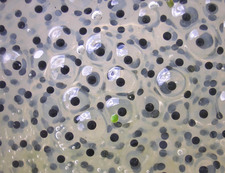Our projects follow this simple process:

Join a specific working group or be part of it all! Contact us to get involved, and let us know what your interests and skills are! Email: HelpYourself.Noho@gmail.com
Site Transformation Process:
Site Transformation Process:
- Identify places around town that are misused: vacant lots, traffic medians, sidewalks, public and private lawns.
- Do a site assessment: taking sun, shade, water flow, foot traffic, soil quality and existing plants into account.
- Make a map of the site, and a stellar design of paths, plantings, signs, and so on.
- Identify nearby sources of plants, lumber, and supplies
- Find a group or someone to commit to maintenance over time
- Organize a planting work party to install the garden!
- Identify grants and organize fundraising volunteers
- Contact local nurseries and farms for donations of plants and supplies
- Promote projects with literature and flyering, Outreach to the community and youth
- Network with and establish polyp groups in nearby communities
- Organize local volunteers to lead repeating, educational wild food walks
Public forest gardens around the world:

A group called the Friends of the Beacon Food Forest have designed, fund raised and and are planting a 7 acre public forest garden in Seattle! Jefferson Park, near downtown, will be transformed into extensive orchards and community gardens. This inspiring, municipal scale permaculture project can serve as precedent and a model for other communities. Full article here, as well as the FBFF park design and the group's website.
Food not lawns!
Polyculture lists.

Food for thought: paths not fences!
Imagine your lawn bursting with fruit trees, bushes, flowers and herbs, producing food and medicine throughout the year for your family and neighborhood. Imagine your neighbors doing the same – fences coming down, paths connecting homes. Neighborhood scale forest gardens are more productive and diverse than a single lawn. Folks can have different types of trees, extending the fruit season. Garden beds lose less space to borders and fences; and nearby trees increase pollination and fruit production. You can go up your street and make the case!
The lawns and fences of suburbia reinforce values of conformity and separation. These are barriers to the integration and connection of our communities, both between neighbors and between humans and the landscape in which we live. We can perpetuate the existing 'stranger danger' culture, or we can invest in new values.
Imagine your lawn bursting with fruit trees, bushes, flowers and herbs, producing food and medicine throughout the year for your family and neighborhood. Imagine your neighbors doing the same – fences coming down, paths connecting homes. Neighborhood scale forest gardens are more productive and diverse than a single lawn. Folks can have different types of trees, extending the fruit season. Garden beds lose less space to borders and fences; and nearby trees increase pollination and fruit production. You can go up your street and make the case!
The lawns and fences of suburbia reinforce values of conformity and separation. These are barriers to the integration and connection of our communities, both between neighbors and between humans and the landscape in which we live. We can perpetuate the existing 'stranger danger' culture, or we can invest in new values.